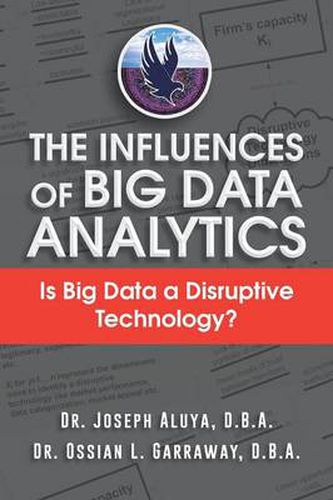Readings Newsletter
Become a Readings Member to make your shopping experience even easier.
Sign in or sign up for free!
You’re not far away from qualifying for FREE standard shipping within Australia
You’ve qualified for FREE standard shipping within Australia
The cart is loading…






This title is printed to order. This book may have been self-published. If so, we cannot guarantee the quality of the content. In the main most books will have gone through the editing process however some may not. We therefore suggest that you be aware of this before ordering this book. If in doubt check either the author or publisher’s details as we are unable to accept any returns unless they are faulty. Please contact us if you have any questions.
The theoretical framework for this book was our ground-up theory of the Scope, Size, Speed, and Skill (4Ss) and Technological Situational Happenstances (TSHs) applied to Big data analytics. With in-depth research, we catechized the effects of the coalesced insights from big data influencing the architectures of incremental and radical business models. We discussed data inflation and the global impact of TSHs. We showed how deft leadership used insights gleaned from big data analytics to make strategic decisions. The big data syndrome led to Microsoft's acquisition of Nokia in our case study. Our study of APPLE Corporation's use of large datasets was explicitly analyzed. Leaderships' failure to incorporate those contextual elements afforded by insights gleaned from big data analytics, concomitant with the associated costs led to acute forms of irrational rationalism, groupthink, and faulty decision making. We explained the statistics used to essentially describe this paradigm shift, such as high dimensionality, incidental endogeneity, noise accumulation, spurious correlation, and computational costs. Significantly, machine learning challenged the status quo by effectively changing the existing technological landscape. To scholarly critics, how would supervised and un-supervised learning algorithms advance the trajectory of perspectives in applied knowledge under the umbrella of big data? Further, political and socio-economics tied to big data was examined. We recommended leaders should have a shared cognition on how to leverage analytics from large datasets for competitive advantages. Most significantly, leaders or managers should be cognizant of the inextricable synergies that seamlessly flow from adroitly implementing a strategy to profit from the speed, size, skill, and scope (i.e. the 4Ss) of the big data environment, conditioned by the leveraging of those transactional situational happenstances generated by increases in market volatility. We concluded the algorithmic processes of leveraging insights from big data have globally resulted in a disruption of current technological pathways.
$9.00 standard shipping within Australia
FREE standard shipping within Australia for orders over $100.00
Express & International shipping calculated at checkout
This title is printed to order. This book may have been self-published. If so, we cannot guarantee the quality of the content. In the main most books will have gone through the editing process however some may not. We therefore suggest that you be aware of this before ordering this book. If in doubt check either the author or publisher’s details as we are unable to accept any returns unless they are faulty. Please contact us if you have any questions.
The theoretical framework for this book was our ground-up theory of the Scope, Size, Speed, and Skill (4Ss) and Technological Situational Happenstances (TSHs) applied to Big data analytics. With in-depth research, we catechized the effects of the coalesced insights from big data influencing the architectures of incremental and radical business models. We discussed data inflation and the global impact of TSHs. We showed how deft leadership used insights gleaned from big data analytics to make strategic decisions. The big data syndrome led to Microsoft's acquisition of Nokia in our case study. Our study of APPLE Corporation's use of large datasets was explicitly analyzed. Leaderships' failure to incorporate those contextual elements afforded by insights gleaned from big data analytics, concomitant with the associated costs led to acute forms of irrational rationalism, groupthink, and faulty decision making. We explained the statistics used to essentially describe this paradigm shift, such as high dimensionality, incidental endogeneity, noise accumulation, spurious correlation, and computational costs. Significantly, machine learning challenged the status quo by effectively changing the existing technological landscape. To scholarly critics, how would supervised and un-supervised learning algorithms advance the trajectory of perspectives in applied knowledge under the umbrella of big data? Further, political and socio-economics tied to big data was examined. We recommended leaders should have a shared cognition on how to leverage analytics from large datasets for competitive advantages. Most significantly, leaders or managers should be cognizant of the inextricable synergies that seamlessly flow from adroitly implementing a strategy to profit from the speed, size, skill, and scope (i.e. the 4Ss) of the big data environment, conditioned by the leveraging of those transactional situational happenstances generated by increases in market volatility. We concluded the algorithmic processes of leveraging insights from big data have globally resulted in a disruption of current technological pathways.